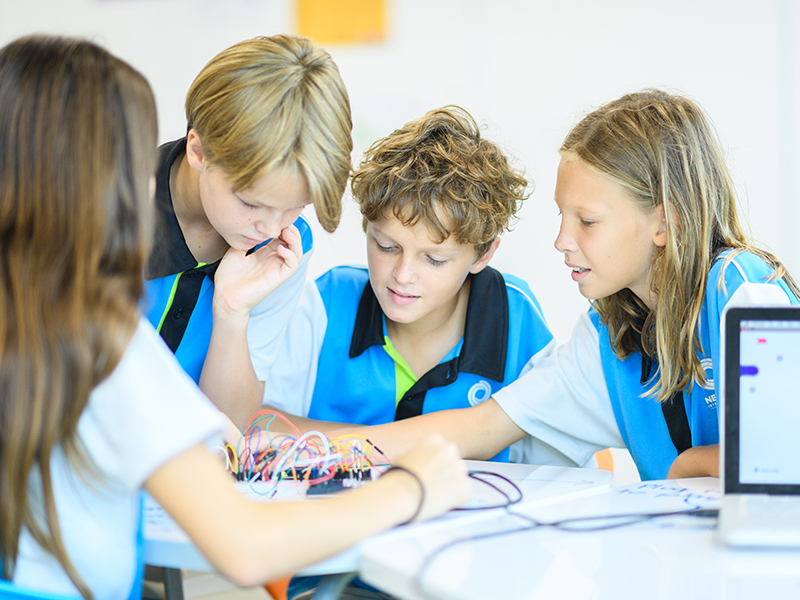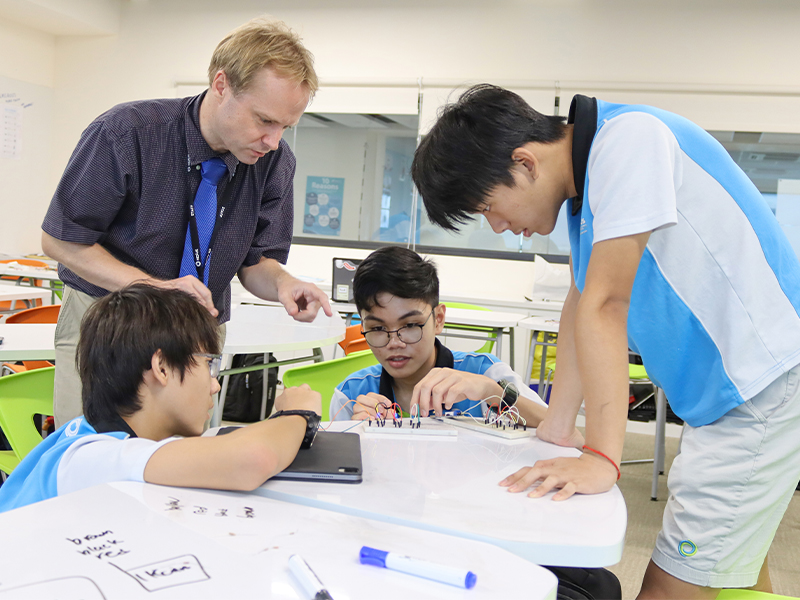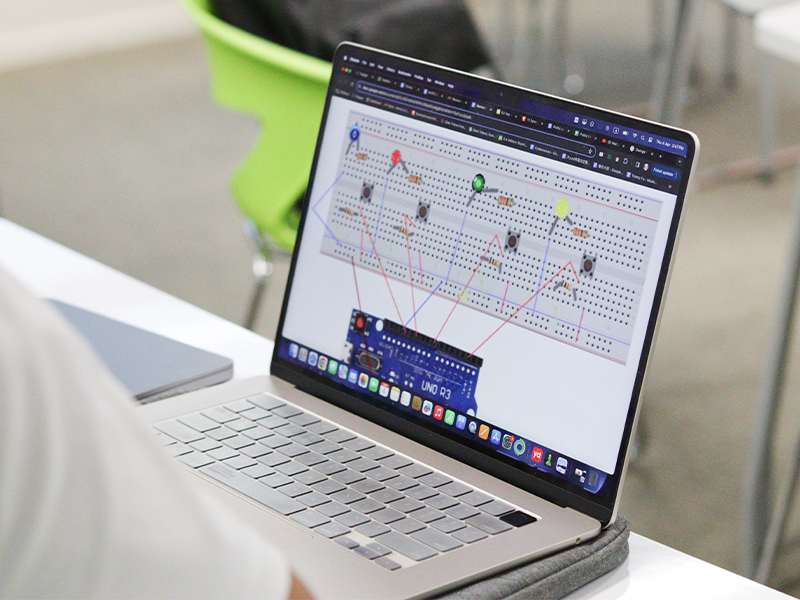Kids at Nexus International School (Singapore) are learning Science, Technology, Engineering and Maths (STEM) concepts through an open-source electronics platform. The Arduino Club, a STEM CCA (co-curricular activity), uses coding for kids to provide them with their first steps in programming.
Learning STEM concepts
While many are familiar with Lego Robotics, Nexus is offering a lesser-known STEM CCA to kids who enjoy coding.
During club time, learners alternate between coding with text-based languages and the construction of Arduino breadboards. The latter is a tool that’s used to make circuits and serves as a backbone to all Arduino coding projects. Learners see how it becomes a physical representation of the way code translates to physical reactions, allowing them to create tools and puzzles with the device.

Guided by Mr Ciaran, the Computer Science teacher, Nexus learners work on creating individual projects throughout the year. They build circuits to achieve a wide variety of tasks. These include constructing burglar alarms, portable music players, temperature sensors and much more.
The school says that when learners complete a project with Arduino, they experience a sense of pride as well as the joy of building something cool. In the process, they get to see how STEM concepts like electric currents and lights can intertwine with coding.
The school’s Arduino Club is just one of over 90 co-curricular activities at Nexus.
The great escape room created with Arduino coding for kids
After a year of creating smaller projects, the group used coding to create an Escape Room. The room incorporates memory games, sensors, radars and more by using Arduino. They also created a storyline and several stations where participants had to solve puzzles and challenges to find the final key and treasures.
The Escape Room was opened to Nexus learners and parents who racked their brains to solve unexpectedly challenging puzzles. The schools says it was heartwarming to see children proudly showing their families the Escape Room they’d designed from scratch. Likewise, the parents were impressed by what had been created and achieved within a short period of time.
Following its success, the Arduino coding club members and Mr Ciaran hope to further refine the Escape Room. They may also possibly open it with an entry fee to raise funds for a non-profit organisation, further adding a service element to the STEM CCA club.

Developing soft skills with STEM concepts
Mr Ciaran’s classroom style emphasises the development of collaboration skills. Within the STEM CCA club, he creates collaborative games and activities. He also randomises groupings and pairings to ensure that no one feels left out. This stems from his own personal schooling experiences, where he says he didn’t have as many opportunities to express himself. He strongly believes that all children should have the chance to challenge outdated ideas and be brave enough to try something new as they all have the potential to be true innovators.
Drawing inspiration from sandbox video games like Minecraft, he notes the value of having a controlled, safe environment where learners can still exercise a certain degree of freedom. “It’s far easier to connect with and relate to someone if you have a common goal, such as earning team points, than if you’re simply sitting together without any structure or objective.”

Expanding on Arduino coding for kids
Besides continuing the Arduino Club in the next academic year, Mr Ciaran will be introducing “Micro: bits”, an Arduino-related STEM CCA for Years 7 to 9.
See how coding for kids and innovation takes centre stage at Nexus at upcoming Open Days on Saturday 7 September and Saturday 26 October. Register today at openday.nexus.edu.sg.
Nexus International School (Singapore) is at 1 Aljunied Walk.
6536 6566 | nexus.edu.sg
Read more about how digital learning at Nexus enhances STEM concepts and how the Nexus counselling team supports students’ mental health and wellbeing. Get more tips on coding for kids, schools and enrichment in our Kids section. This article first appeared in the August 2024 edition of Expat Living. You can purchase the latest issue or subscribe so you never miss a copy! To make the most of living in Singapore, read our latest City Guide here for free!
Don't miss out on the latest events, news and
competitions by signing up to our newsletter!
By signing up, you'll receive our weekly newsletter and offers which you can update or unsubscribe to anytime.

